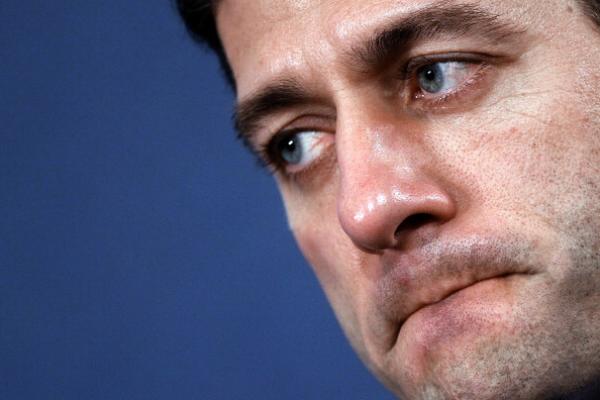Remember Rep. Paul Ryan’s 2011 budget, The Path to Prosperity? Well, it’s baaa-aaack — and this time the path is smoother and wider and offers a quicker trip to judgment.
Christianity and most of the world’s faith traditions explicitly demand protection for the poor and the preservation of the lives and dignity of all. Well, the Chair of the House Budget Committee, Ryan, high-tails it down his Path, budget rolled in-hand, in the exact opposite direction from those moral commitments.
Bob Greenstein, president of the Center on Budget and Policy Priorities (CBPP), concluded that the Ryan budget “is Robin Hood in reverse — on steroids. It would likely produce the largest redistribution of income from the bottom to the top in modern U.S. history and likely increase poverty and inequality more than any other budget in recent times (and possibly in the nation's history)."
Any responsible budget plan requires a balanced approach that would both increase revenue and reduce spending. This proposal would cut taxes, merely hope for revenue, increase military spending, and slash most everything else that isn’t protected by large corporate interests.
Ryan gives further tax cuts to the wealthy in a plan that would simultaneously increase the effective tax rates on low and moderate-income people. This completely fails to acknowledge that on our current course, well over half of our projected debt by 2019 has been caused by the Bush-era tax cuts and the wars in Iraq and Afghanistan. Yes, we have a revenue problem.
What you need to know about our federal budget is that about two-thirds of it is what’s called “mandatory spending.” Programs such as Social Security, Medicare, and Medicaid mostly make up that part of the budget. The other third is “discretionary spending” and includes money for core defense spending, education, roads, scientific research, and other programs for low-income people. About half of all “discretionary spending” is spent on defense.
Ryan claims that the budget is bold and makes tough choices, but it doesn’t.
When it comes to the “mandatory spending” Ryan’s plan kicks any problems down the road a decade. Cost reductions — by turning Medicare into a voucher system — would start in 10 years and undermine the primary commitment of the program: guaranteed health coverage for senior citizens.
When you look at the “discretionary spending” side, Ryan not only takes the idea of cutting military spending off the table, he significantly increases the core defense budget. While the plan doesn’t yet specify all of the additional “discretionary spending” cuts Ryan would like to see, the CBPP put it this way: If the Ryan plan were enacted, “by 2050, most of the federal government aside from Social Security, health care, and defense would cease to exist.”
SNAP (Supplemental Nutrition Assistance Program) — an effective program that helps millions of families survive their toughest days by making sure that, if nothing else, they have food on the table — would end up squeezed and then block granted.
One of the reasons why SNAP works so well right now is that its funding has the flexibility to fluctuate up and down when there is a change in need. Block granting the program would send a fixed amount of money to states and take away one of the main reasons it works so well in the first place.
Ryan, as a Catholic, has flagrantly disregarded the moral counsel of the U.S. Conference of Catholic Bishops, which released a statement on March 6 affirming the following:
“Congress should base decisions on the federal budget on whether they protect or threaten human life and dignity, whether they put the needs of the hungry, the homeless and the unemployed first, and whether they reflect the shared responsibility of government and other institutions to promote the common good of all, especially workers and families who struggle to live in dignity in difficult economic times.”
Not only does his budget fail to meet the basic teachings of Ryan’s religious tradition, the plan shows moral cowardice. I don’t know any world in which a “tough choice” is piling benefits on the already rich and powerful while asking people who are already struggling to pay for it.
Though the vulnerable may not have Super PACs or gangs of lobbyists fighting for them, they do have us — people of faith. And our faith compels us to fight this immoral budget.
We are committed to pray and fast and write letters and raise our voices in the public square in the hope that America’s conscience might be awakened from a sound, silent slumber. And that together we might recommit our nation to the task of preserving the lives and dignity of all — especially the least of these.
Lisa Sharon Harper is the director of mobilizing at Sojourners. She is also co-author of Left, Right and Christ: Evangelical Faith in Politics and author of Evangelical Does Not Equal Republican ... or Democrat.
Got something to say about what you're reading? We value your feedback!
